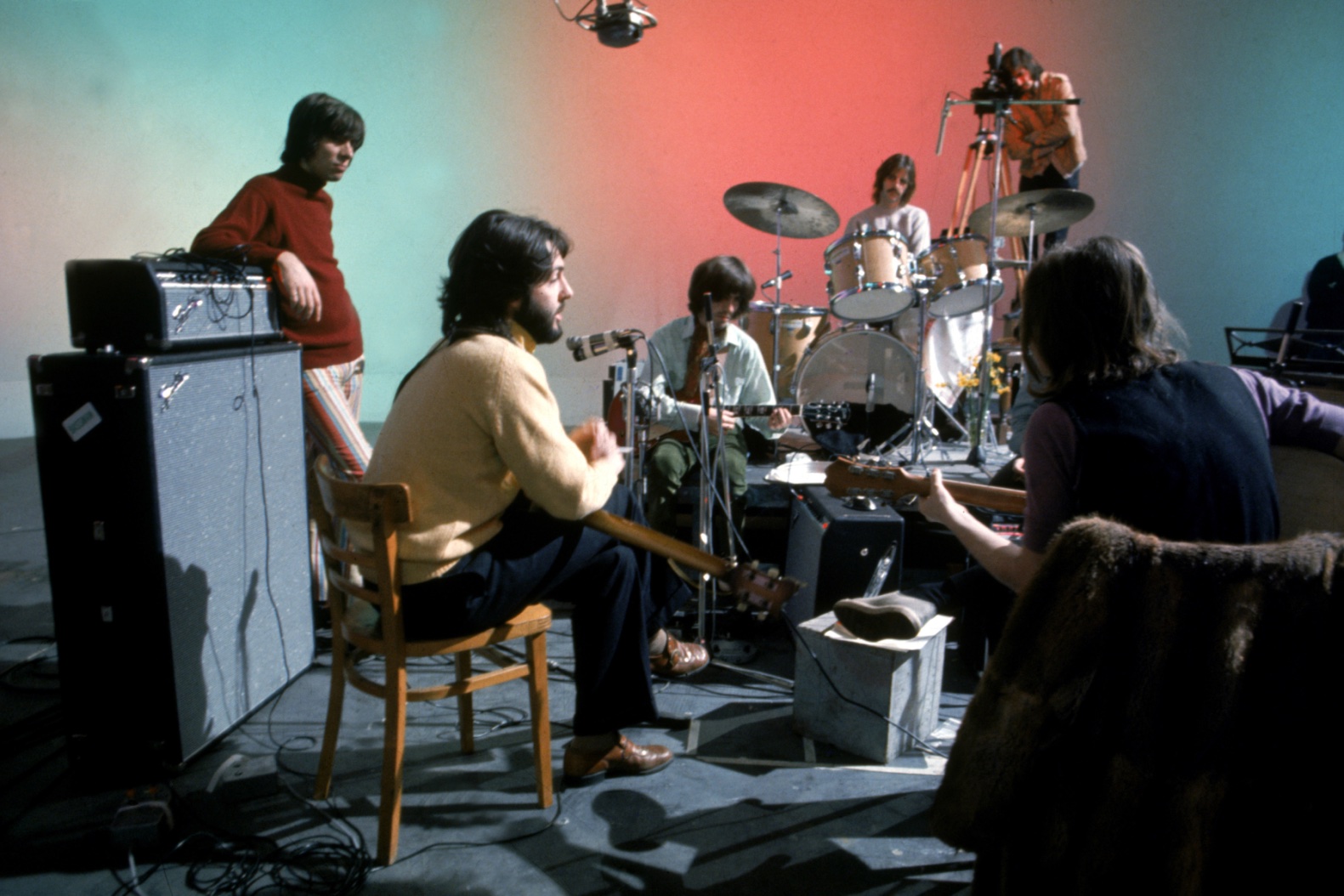The Beatles ‘were changing’: Michael Lindsay-Hogg talks lost ‘Let It Be’ doc with Peter Jackson
The two filmmakers discuss the upcoming restoration of the 1970 film, which arrives on Disney+ this week
By Jon Blistein

Michael Lindsay-Hogg tells Peter Jackson he’s excited for his long-lost Beatles documentary Let It Be to have “a new life in the sunshine” ahead of its eagerly-anticipated re-release this week.
“Let It Be is an entirely different part of the Beatles’ story,” Lindsay-Hogg says in a new featurette, premiering exclusively on Rolling Stone. “The Beatles that we’d grown up with were not the Beatles in Let It Be. They were changing.”
Let It Be, the movie, was filmed in January 1969, but released in May 1970, around the same time as the album of the same name, and just weeks after Paul McCartney announced the Beatles had broken up. The movie featured some remarkable footage from the creatively fertile, but emotionally fraught writing sessions that produced many of the songs on Let It Be and Abbey Road (plus a few individual solo tunes); and it also included the Beatles’ famous performance on the roof of Apple Corps Records in London.
But Let It Be only got a limited theatrical release in 1970, after which it was officially unavailable for decades. The new restored version — arriving this Wednesday, May 8, on Disney+ — comes after Jackson used the trove of footage Lindsay-Hogg shot to make his essential 2021 documentary, The Beatles: Get Back.
In his new conversation with Jackson, Lindsay-Hogg discusses how the Let It Be project evolved from a concert film into a documentary and the creative ways he filmed the sessions to get a fly-on-the-wall perspective that would potentially encourage the band to “reveal themselves, insofar as they ever wanted to.”
“I loved the four of them,” Lindsay-Hogg says at the end of the clip. “I really felt love for them, like a director often feels love for an actor. I really cared for them. Also, I knew what a difference they’d made to the world. They did bring joy to the world.”
